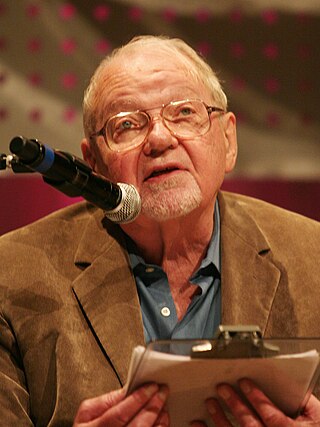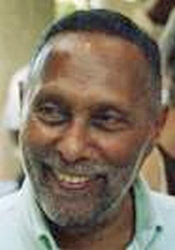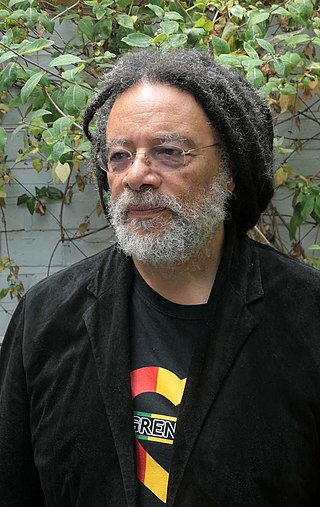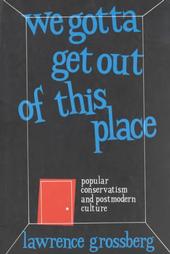Postmodern music is music in the art music tradition produced in the postmodern era. It also describes any music that follows aesthetical and philosophical trends of postmodernism. As an aesthetic movement it was formed partly in reaction to modernism but is not primarily defined as oppositional to modernist music. Postmodernists question the tight definitions and categories of academic disciplines, which they regard simply as the remnants of modernity.

In the arts and literature, the term avant-garde identifies an experimental genre or work of art, and the artist who created it, which usually is aesthetically innovative, whilst initially being ideologically unacceptable to the artistic establishment of the time. The military metaphor of an advance guard identifies the artists and writers whose innovations in style, form, and subject-matter challenge the artistic and aesthetic validity of the established forms of art and the literary traditions of their time; thus, the artists who created the anti-novel and Surrealism were ahead of their times.

Raymond Henry Williams was a Welsh socialist writer, academic, novelist and critic influential within the New Left and in wider culture. His writings on politics, culture, the media and literature contributed to the Marxist critique of culture and the arts. Some 750,000 copies of his books were sold in UK editions alone, and there are many translations available. His work laid foundations for the field of cultural studies and cultural materialism.
Postmodernity is the economic or cultural state or condition of society which is said to exist after modernity. Some schools of thought hold that modernity ended in the late 20th century – in the 1980s or early 1990s – and that it was replaced by postmodernity, and still others would extend modernity to cover the developments denoted by postmodernity. The idea of the postmodern condition is sometimes characterized as a culture stripped of its capacity to function in any linear or autonomous state like regressive isolationism, as opposed to the progressive mind state of modernism.

Mikhail Naumovich Epstein is a Russian-American literary scholar, essayist, and cultural theorist best known for his contributions to the study of Russian postmodernism. He is the Emeritus S. C. Dobbs Professor of Cultural Theory and Russian Literature at Emory University, Atlanta, Georgia. His writings encompass Russian literature and intellectual history, the philosophy of religion, the creation of new ideas in the age of electronic media, semiotics, and interdisciplinary approaches in the humanities. His works have been translated into over 26 languages.

Fredric Ruff Jameson was an American literary critic, philosopher and Marxist political theorist. He was best known for his analysis of contemporary cultural trends, particularly his analysis of postmodernity and capitalism. Jameson's best-known books include Postmodernism, or, The Cultural Logic of Late Capitalism (1991) and The Political Unconscious (1981).
Cultural history records and interprets past events involving human beings through the social, cultural, and political milieu of or relating to the arts and manners that a group favors. Jacob Burckhardt (1818–1897) helped found cultural history as a discipline. Cultural history studies and interprets the record of human societies by denoting the various distinctive ways of living built up by a group of people under consideration. Cultural history involves the aggregate of past cultural activity, such as ceremony, class in practices, and the interaction with locales. It combines the approaches of anthropology and history to examine popular cultural traditions and cultural interpretations of historical experience.
Critique is a method of disciplined, systematic study of a written or oral discourse. Although critique is frequently understood as fault finding and negative judgment, it can also involve merit recognition, and in the philosophical tradition it also means a methodical practice of doubt. The contemporary sense of critique has been largely influenced by the Enlightenment critique of prejudice and authority, which championed the emancipation and autonomy from religious and political authorities.

Stuart Henry McPhail Hall was a Jamaican-born British Marxist sociologist, cultural theorist, and political activist. Hall — along with Richard Hoggart and Raymond Williams — was one of the founding figures of the school of thought known as British Cultural Studies or the Birmingham School of Cultural Studies.

Paul Gilroy is an English sociologist and cultural studies scholar who is the founding Director of the Sarah Parker Remond Centre for the Study of Race and Racism at University College London (UCL). Gilroy is the 2019 winner of the €660,000 Holberg Prize, for "his outstanding contributions to a number of academic fields, including cultural studies, critical race studies, sociology, history, anthropology and African-American studies".
Post-postmodernism is a wide-ranging set of developments in critical theory, philosophy, architecture, art, literature, and culture which are emerging from and reacting to postmodernism.

We Gotta Get Out of This Place: Popular Conservatism and Postmodern Culture by Lawrence Grossberg was published in 1992 and deals with several aspects of (then) contemporary American culture: Lawrence Grossberg states that it is a book about “the political, economic and cultural forces which are producing a new atmosphere, a new kind of dissatisfaction and a new conservatism in American life”. Further, he discusses how commercialization, a lack of passion, and depoliticization causes a new conservatism in rock. A critical review of the book calls it "a highly ambitious and intriguing work, if an ultimately flawed one."
Neo-medievalism is a term with a long history that has acquired specific technical senses in two branches of scholarship. In political theory about modern international relations, where the term is originally associated with Hedley Bull, it sees the political order of a globalized world as analogous to high-medieval Europe, where neither states nor the Church, nor other territorial powers, exercised full sovereignty, but instead participated in complex, overlapping and incomplete sovereignties.
Ellen A. Wartella is a leading scholar of the role of media in children's development. She is the chair and professor of communication, director of Northwestern University's Center on Media and Human Development, and an adviser for the review at Northwestern University. She studies social policy, media studies, psychology, and child development at the University. She believes that smartphones are disruptive in a way that's different from earlier technology.
Dilip Parameshwar Gaonkar is a Professor in Rhetoric and Public Culture and the Director of Center for Global Culture and Communication at Northwestern University. He is also Executive Director of the Center for Transcultural Studies, an independent scholarly research network concerned with global issues based in Chicago and New York. Gaonkar was closely associated with the influential journal Public Culture from the early 1990s, serving in various editorial capacities: associate editor (1992-2000), executive editor (2000-2009), and editor (2009-2011).

Angela McRobbie is a British cultural theorist, feminist, and commentator whose work combines the study of popular culture, contemporary media practices and feminism through conceptions of a third-person reflexive gaze. She is a professor of communications at Goldsmiths College, University of London.

Metamodernism is the term for a cultural discourse and paradigm that has emerged after postmodernism. It refers to new forms of contemporary art and theory that respond to modernism and postmodernism and integrate aspects of both together. Metamodernism reflects an oscillation between, or synthesis of, different "cultural logics" such as modern idealism and postmodern skepticism, modern sincerity and postmodern irony, and other seemingly opposed concepts.
Cultural studies is a politically engaged postdisciplinary academic field that explores the dynamics of especially contemporary culture and its social and historical foundations. Cultural studies researchers generally investigate how cultural practices relate to wider systems of power associated with, or operating through, social phenomena. These include ideology, class structures, national formations, ethnicity, sexual orientation, gender, and generation. Employing cultural analysis, cultural studies views cultures not as fixed, bounded, stable, and discrete entities, but rather as constantly interacting and changing sets of practices and processes. The field of cultural studies encompasses a range of theoretical and methodological perspectives and practices. Although distinct from the discipline of cultural anthropology and the interdisciplinary field of ethnic studies, cultural studies draws upon and has contributed to each of these fields.

A critical theory is any approach to humanities and social philosophy that focuses on society and culture to attempt to reveal, critique, and challenge or dismantle power structures. With roots in sociology and literary criticism, it argues that social problems stem more from social structures and cultural assumptions than from individuals. Some hold it to be an ideology, others argue that ideology is the principal obstacle to human liberation. Critical theory finds applications in various fields of study, including psychoanalysis, film theory, literary theory, cultural studies, history, communication theory, philosophy, and feminist theory.

Marxist cultural analysis is a form of cultural analysis and anti-capitalist cultural critique, which assumes the theory of cultural hegemony and from this specifically targets those aspects of culture that are profit driven and mass-produced under capitalism.











